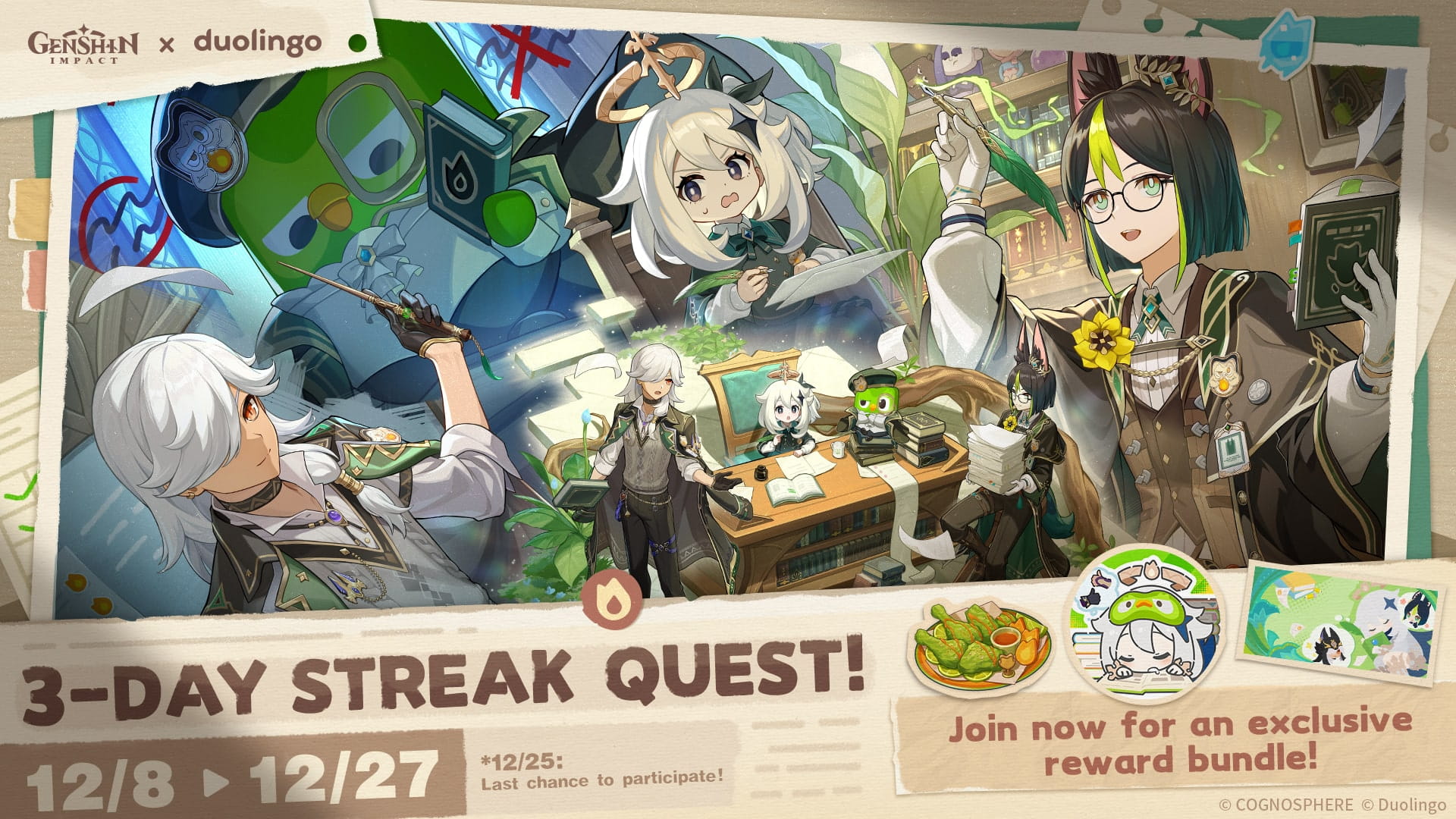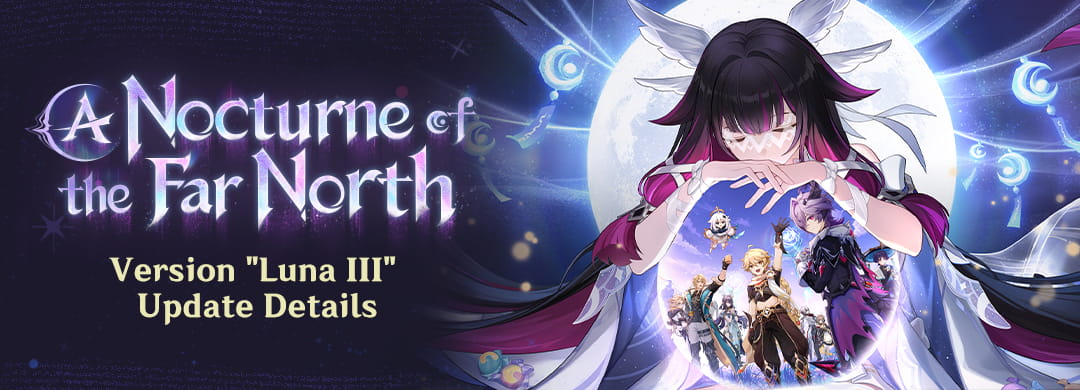
Event Wish "Cornucopia of Contention" - Boosted Drop Rate for "Strength in Serenity" Varesa (Electro)!
Read more on Version "Luna III" Event Wishes Notice - Phase II.
Event Wish “Cornucopia of Contention” – Boosted Drop Rate for “Strength in Serenity” Varesa (Electro)!

Hi Traveler! Welcome to the Dragonspine International Cross Country Challenge! Besides the thrilling cross-country race events, various fun games have been set up back at the camp. Come enjoy this energetic snowy-mountain adventure!

While progressing through the special phase of the Archon Quest “Song of the Welkin Moon: Act V – A Nocturne of the Far North,” Travelers will be temporarily unable to accept or progress Selenic Chronicles quests. Please wait for what comes next.

The moonlight illuminating the path home stretches out before Columbina, yet she is unable to set foot on it.

The “Moon-Prayer Night” festival proceeded as scheduled, but this time it welcomed an unusual guest.

The special program for Genshin Impact’s new version will premiere on the official Twitch and YouTube channels on 01/02/2026 at 13:00 (UTC+8)!

When the magic known as storytelling breathes life into a character, it too awakens a heart that knows how to wish.

The Genshin Impact × Duolingo collaboration starts on December 8!

Below are the details of the Version “Luna III” update “Song of the Welkin Moon: Interlude – A Nocturne of the Far North” and the update compensation.

The author of the fairy tale pours their imagination into writing its beginning, middle, and end.
